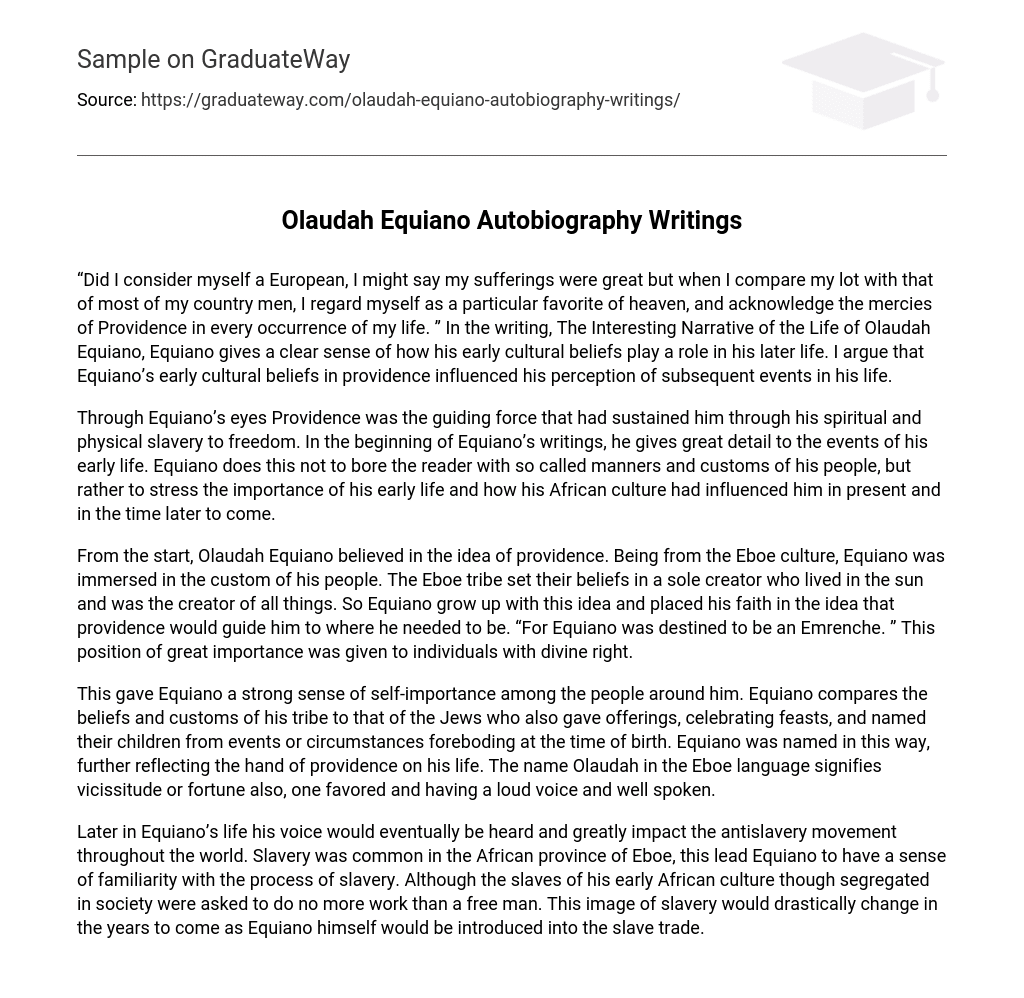“Did I consider myself a European, I might say my sufferings were great but when I compare my lot with that of most of my country men, I regard myself as a particular favorite of heaven, and acknowledge the mercies of Providence in every occurrence of my life. ” In the writing, The Interesting Narrative of the Life of Olaudah Equiano, Equiano gives a clear sense of how his early cultural beliefs play a role in his later life. I argue that Equiano’s early cultural beliefs in providence influenced his perception of subsequent events in his life.
Through Equiano’s eyes Providence was the guiding force that had sustained him through his spiritual and physical slavery to freedom. In the beginning of Equiano’s writings, he gives great detail to the events of his early life. Equiano does this not to bore the reader with so called manners and customs of his people, but rather to stress the importance of his early life and how his African culture had influenced him in present and in the time later to come.
From the start, Olaudah Equiano believed in the idea of providence. Being from the Eboe culture, Equiano was immersed in the custom of his people. The Eboe tribe set their beliefs in a sole creator who lived in the sun and was the creator of all things. So Equiano grow up with this idea and placed his faith in the idea that providence would guide him to where he needed to be. “For Equiano was destined to be an Emrenche. ” This position of great importance was given to individuals with divine right.
This gave Equiano a strong sense of self-importance among the people around him. Equiano compares the beliefs and customs of his tribe to that of the Jews who also gave offerings, celebrating feasts, and named their children from events or circumstances foreboding at the time of birth. Equiano was named in this way, further reflecting the hand of providence on his life. The name Olaudah in the Eboe language signifies vicissitude or fortune also, one favored and having a loud voice and well spoken.
Later in Equiano’s life his voice would eventually be heard and greatly impact the antislavery movement throughout the world. Slavery was common in the African province of Eboe, this lead Equiano to have a sense of familiarity with the process of slavery. Although the slaves of his early African culture though segregated in society were asked to do no more work than a free man. This image of slavery would drastically change in the years to come as Equiano himself would be introduced into the slave trade.





